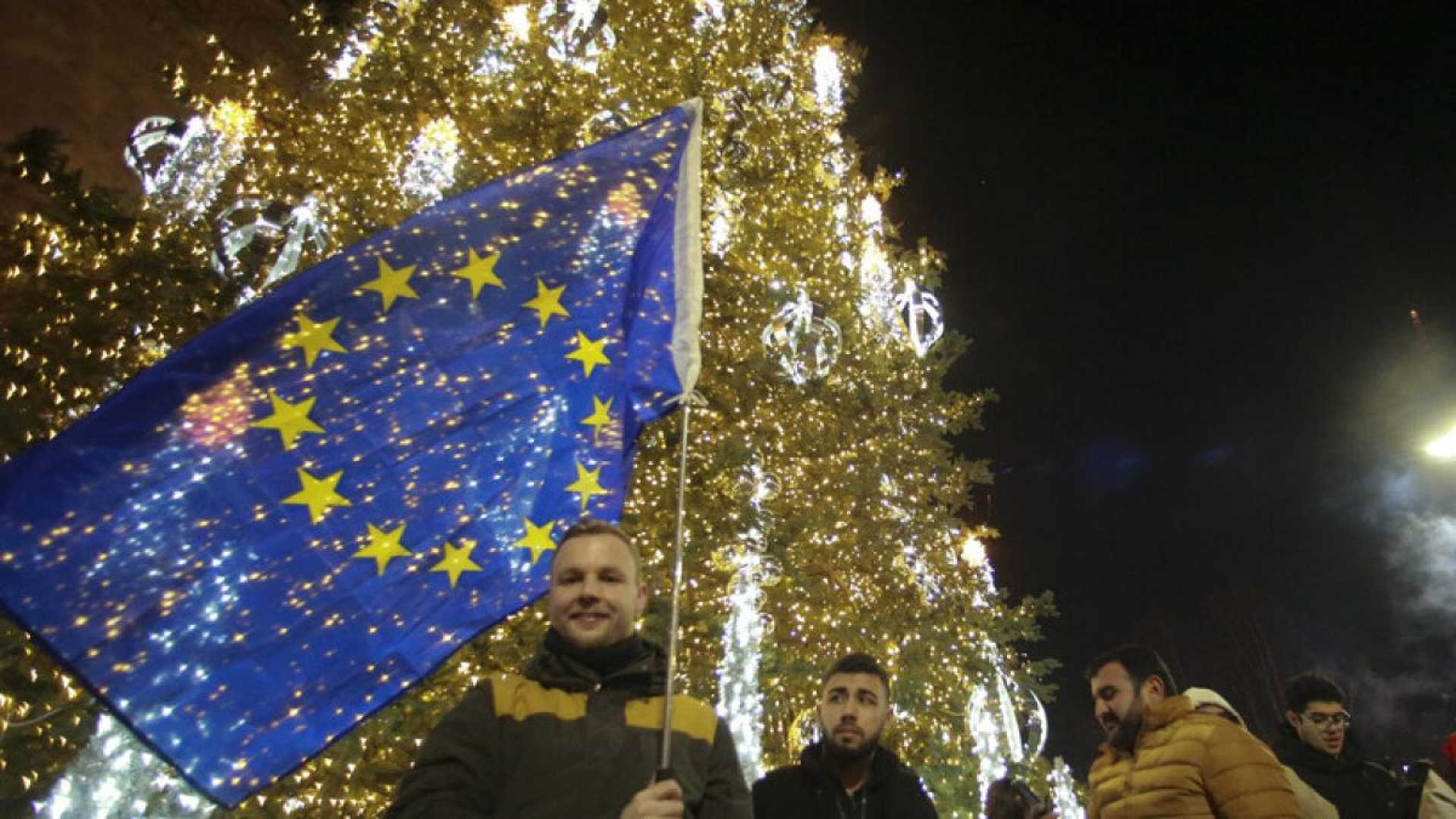Politics
Tbilisi Protests Escalate as Georgia Faces Political Crisis

TBILISI, Georgia – Anti-government protests erupted in Tbilisi on January 18, 2025, as demonstrators defied new regulations banning face coverings, a move seen as an attempt by authorities to suppress dissent. Hundreds of protesters, many wearing masks mocking billionaire Bidzina Ivanishvili, founder of the ruling Georgian Dream party, took to the streets for the 52nd consecutive night of demonstrations.
The protests intensified after the Georgian Dream party pushed through its candidate, Mikheil Kavelashvili, as the country’s new president in December 2024. Former President Salome Zurabishvili, who sided with protesters during her term, condemned the government as “unconstitutional” and called on the U.S. and Europe to defend Georgian democracy against potential Russian interference. Zurabishvili urged U.S. President Donald Trump to send a clear message to Russian President Vladimir Putin: “Hands off Georgia. Hands off the Caucasus.”
The political crisis stems from October 2024 parliamentary elections, which the Organization for Security and Cooperation in Europe (OSCE) said were marred by vote-buying, double-voting, and intimidation. The government’s decision in November to delay EU accession talks further fueled public outrage. Protesters have blocked key roads, launched firecrackers at police, and used lasers to disrupt surveillance cameras, leading to violent clashes with security forces.
Human Rights Watch (HRW) condemned the government’s crackdown, citing “brutal police violence” against largely peaceful demonstrators. The U.S. sanctioned Georgian Dream in December for undermining democracy and enabling human rights abuses. Despite receiving EU candidate status in 2023, Georgia’s ties with Brussels have been strained since the adoption of a controversial “foreign agent” law in May 2024.
Zurabishvili and opposition leaders are demanding new parliamentary elections as the only resolution to the crisis. Meanwhile, the government has deployed Chinese-made surveillance cameras with facial recognition capabilities to monitor protesters, raising concerns about privacy and freedom of expression.












